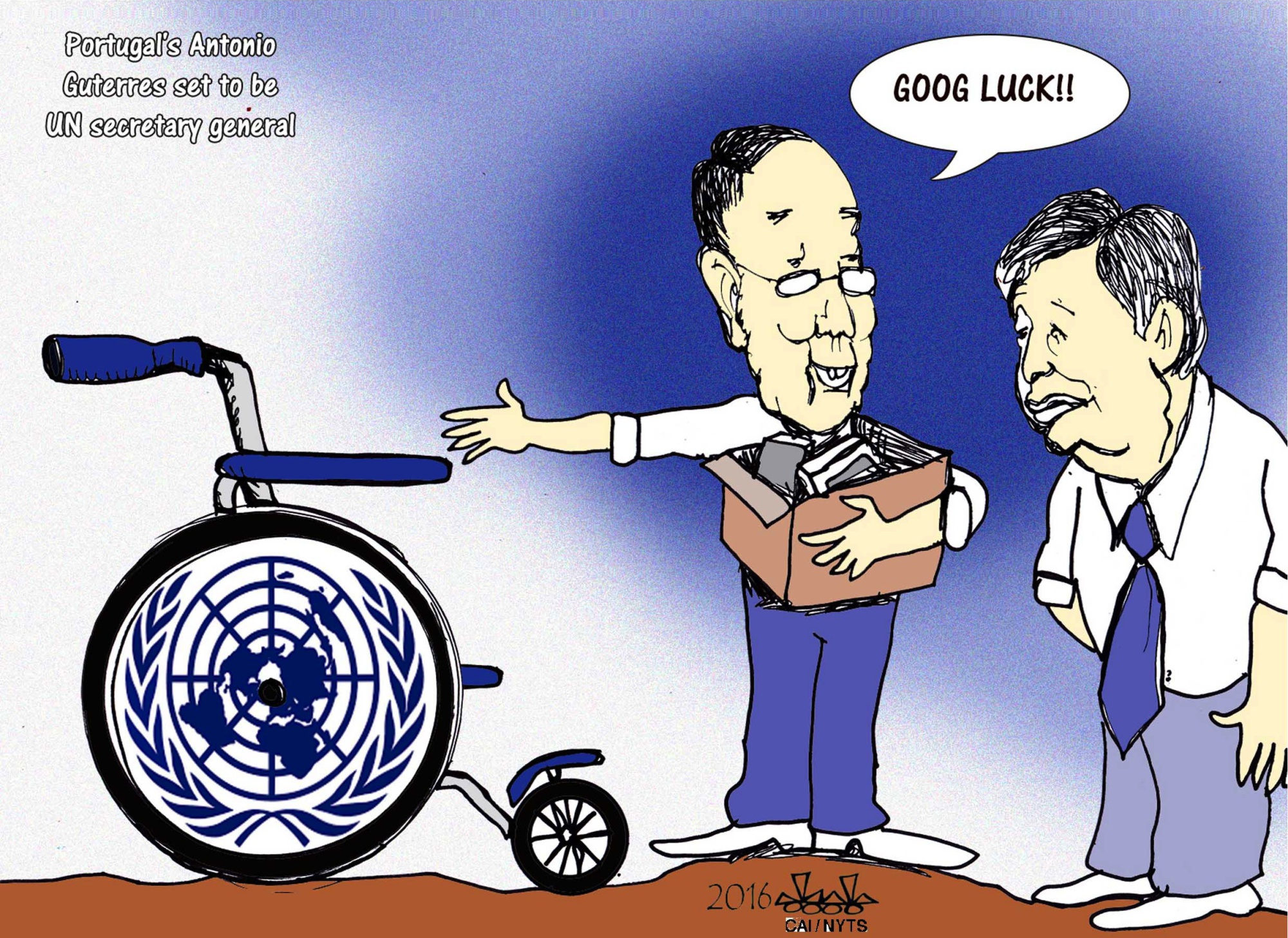U.N. Secretary-General Ban Ki-moon will step down at the end of this month, leaving behind a world that he says has been engulfed by more protracted and complex armed conflicts than a decade ago when he took the helm of the world organization.
Looking back at 2016, crises continued unabated in many places in the Middle East and Africa, including Syria, Afghanistan, Iraq, Libya, South Sudan and Yemen. Millions of people have been displaced in the crises that are deepening in the Sahel region. In Asia, tension has been higher than before on the Korean Peninsula, where North Korea has conducted two nuclear tests and test-fired more than 20 ballistic missiles since January. And more countries have been subject to the growing threat of international terrorism. The world has indeed become a less safe place to live.
Addressing the world leaders who gathered for the annual General Assembly session in September, Ban vented his frustration at the United Nations' 193 member states for the organization's failure to resolve global crises: "Far too often, I have seen widely supported proposals blocked, in the name of consensus, by a few or even just one country. ... Time and again, I have seen essential action and good ideas blocked in the Security Council; blocked in the General Assembly; blocked in the budget process, the Conference on Disarmament and other bodies."



